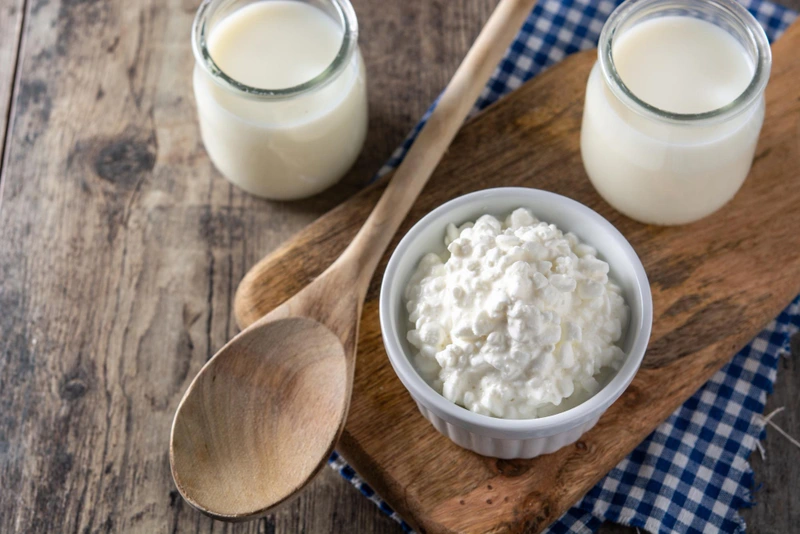- Published on: Jul 26, 2025
- 2 minute read
- By: Secondmedic Expert
How To Spot Signs Of Hormonal Imbalance In Men
When we think of hormones, we often think of women—but men have hormones too. And just like women, men can suffer from hormonal imbalances, especially as they age or deal with chronic stress, poor diet, or lifestyle changes.
But unlike women, the signs are often subtle and easy to ignore.
So how do you know if your hormones are out of balance? Let’s break down the symptoms, causes, and solutions so you can take better control of your health.
What Are Male Hormones?
The main male hormone is testosterone, but there are others involved too, like:
-
Cortisol – the stress hormone
-
Thyroid hormones (T3, T4, TSH) – for metabolism and energy
-
DHEA – affects mood and aging
-
Insulin – regulates blood sugar
-
Estrogen – yes, men have this too in smaller amounts
A healthy balance is key for physical energy, mental focus, sexual health, and emotional stability.
Signs of Hormonal Imbalance in Men
1. Fatigue and Low Energy
If you’re feeling tired all the time—even after rest—it could be low testosterone or thyroid issues. Hormones help regulate energy levels.
2. Mood Changes
Feeling more anxious, irritable, or even depressed? These can be signs of low testosterone or high cortisol levels, especially if they come on suddenly or worsen over time.
3. Decreased Sex Drive
A noticeable drop in libido or difficulty with erections often links to declining testosterone levels—a common but often unspoken issue in men.
4. Weight Gain, Especially Around the Belly
Men with low testosterone may gain weight more easily, especially abdominal fat, while losing lean muscle mass.
5. Hair Thinning
Hair loss on the scalp or body can be a sign of hormonal fluctuation—specifically in DHT (a form of testosterone) or thyroid imbalance.
6. Brain Fog and Poor Focus
Can’t concentrate like you used to? Struggling with memory or mental clarity? Hormonal dips can affect brain performance too.
What Causes Hormonal Imbalance?
-
Aging (especially after 30–40 years)
-
Chronic stress
-
Poor diet (low protein, high sugar)
-
Sedentary lifestyle
-
Lack of sleep
-
Excess alcohol or smoking
-
Medical conditions like diabetes, obesity, thyroid disease
How to Diagnose It?
Simple blood tests can reveal hormone levels. Doctors often check:
-
Total and Free Testosterone
-
TSH, T3, T4 (thyroid profile)
-
LH and FSH (pituitary hormones)
-
Cortisol (stress hormone)
-
DHEA and estrogen levels
Many labs offer male hormone panels—available through platforms like SecondMedic.com with Thyrocare-backed testing.
Lifestyle Tips to Improve Hormone Balance
-
Exercise Regularly – especially strength training
-
Eat a Balanced Diet – rich in protein, healthy fats, and fiber
-
Sleep 7–8 Hours – quality sleep boosts testosterone
-
Reduce Stress – try yoga, meditation, or walking
-
Limit Alcohol and Smoking – both disrupt hormone function
-
Stay Hydrated and Active – support metabolism and detox
When to See a Doctor
If you notice 2 or more symptoms consistently—especially low libido, fatigue, or weight gain—it’s a good idea to consult a healthcare provider. Early diagnosis can help you:
-
Prevent chronic conditions
-
Regain energy and focus
-
Improve sexual health
-
Protect heart and bone health
Conclusion
Hormonal imbalance in men is more common than we think—and it doesn’t just affect older adults. From mood changes and low energy to weight gain and hair loss, the signs are subtle but significant.
Knowing how to spot signs of hormonal imbalance in men is the first step toward restoring your vitality and well-being. With the right lifestyle changes and medical guidance, hormone health can be balanced and optimized.
Read FAQs
A. Common causes include aging, chronic stress, poor diet, lack of sleep, and certain medical conditions.
A. Hormone levels, especially testosterone, begin to decline naturally after age 30.
A. Yes, low testosterone or thyroid issues can cause depression, anxiety, and mood instability.
A. Yes. Blood tests like testosterone, TSH, LH, and cortisol can help diagnose hormonal issues.
A. Absolutely. Regular exercise, a balanced diet, better sleep, and reduced stress can improve hormone levels naturally.
Our Services
Request A Callback
Recent Posts
Is Curd Good or Bad for Acidity?
Aug 02,2025
Can Fatty Liver Be Reversed Completely?
Jul 31,2025
How Your Sleep Schedule Affects Digestion
Jul 28,2025
How to Spot Signs of Hormonal Imbalance in Men
Jul 26,2025
Do You Need a Digital Detox? Signs and Symptoms
Jul 25,2025










